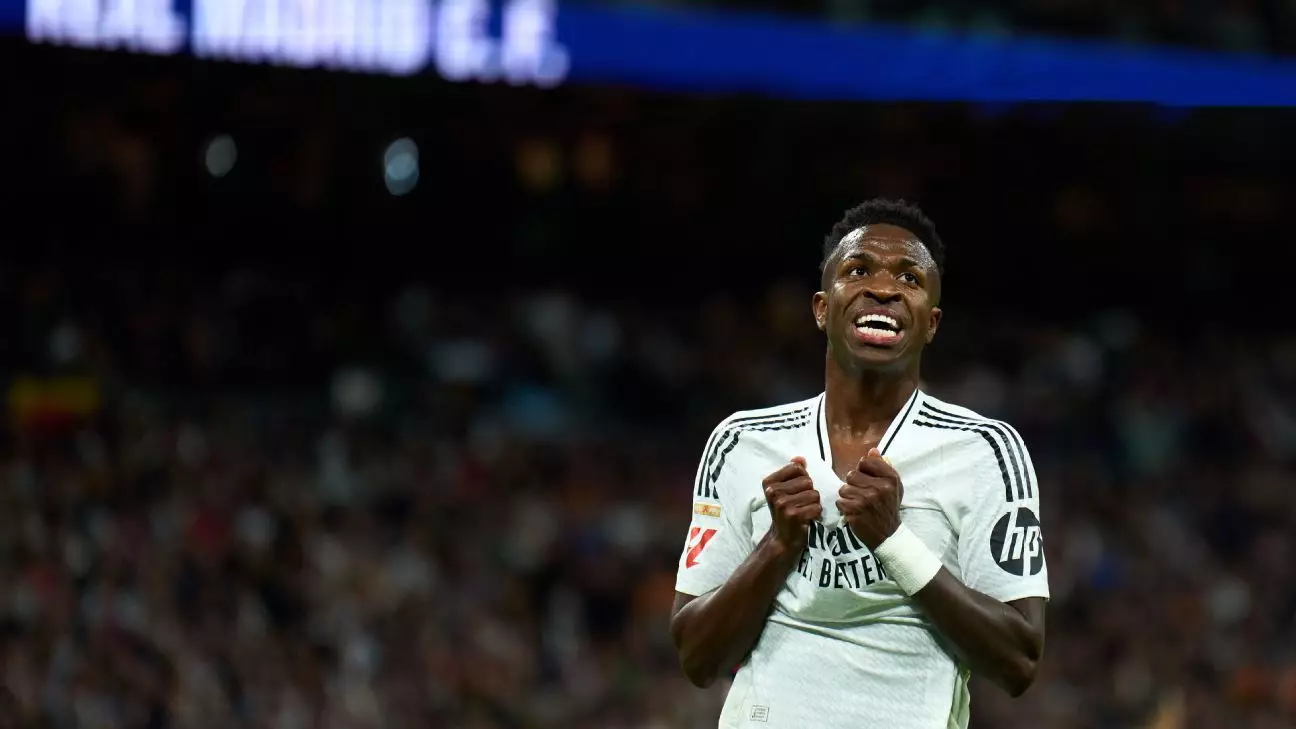Throughout history, numerous iconic figures have demonstrated how failure, rejection, and criticism can serve as motivation to achieve greatness. Every sportsman knows that the road to success is often paved with setbacks and unfair judgments. In the world of football, Brazilian winger Vinícius Júnior finds himself at a crucial juncture, where recent disappointments—most notably the snub from the Ballon d’Or—could fuel a remarkable transformation or lead him down a troubled path. His reaction to being overlooked as the world’s best player has not only drawn attention to his character but also raises questions about how high he is willing to soar in the face of adversity.
Vinícius’s exclusion from the Ballon d’Or’s top spot triggered a furious response from him and the Real Madrid club. He had anticipated a victory, even planning grand celebrations. When he was surpassed by Manchester City’s Rodri, the disappointment was palpable, leading club president Florentino Pérez to cancel their attendance at the Paris gala. The backlash was swift; critics labeled their actions as “crybaby” behavior. Yet, rather than retreating in defeat, Vinícius took to social media, declaring, “I’ll do 10 times more if I have to. They’re not ready.” This powerful statement has sparked conversations about how he might channel this disappointment into a spectacular season ahead.
The true test for Vinícius will not only be in overcoming this snub but in the way he chooses to respond. Unlike many who let anger distract them, he seems determined to transform this perceived injustice into a source of inspiration. This behavior invites comparisons to other greats in sports and beyond—figures who have faced similar challenges yet used their struggles as fuel.
History is laden with examples of remarkable individuals who turned rejection into revolution. The Beatles famously endured a harsh rejection by DECCA Records, yet this pivotal moment fueled an unstoppable drive that culminated in unparalleled musical influence. Similarly, Michael Jordan’s high school basketball cutfire ignited his path to becoming one of the all-time greats, proving that initial hurdles do not define a player’s future.
In football, David Beckham’s dismissal as public enemy number one following the 1998 World Cup galvanized him into a stellar comeback season. The narrative of resilience stretches to legendary status among players faced with extraordinary challenges. Even Lionel Messi, who faced doubts due to his size, transcended expectations and became an inspiration worldwide.
Vinícius now stands in the company of these giants, which must weigh heavily on his shoulders. The question is whether he can draw from that legacy and rise above the din of criticism while using it to manifest his brilliance on the field.
As Vinícius gears up for upcoming challenges, particularly with AC Milan in Champions League action, the focus shifts towards his mental fortitude. In the past, he has proven himself capable of crucial contributions even when adversity looms. To many observers, this reflective period of intentional growth could serve as a defining moment in his evolution as a player.
While his personal character and competitive spirit have shone through previously, their sustainability amid criticism remains a topic of inquiry. Previous incidents—like being at the center of an emotional fallout with teammate Karim Benzema—demonstrate his growth in handling disputes. Rather than crumble under disparagement, Vinícius rebounded to form a formidable partnership with Benzema, showcasing his ability to use negativity as stepping stones rather than stumbling blocks.
However, players disciplined over time can also become jaded and react impulsively. There are cautionary tales—Roy Keane’s infamous tackle against Alf-Inge Haaland stands as a poignant reminder of how failure to contain emotions could lead to destructive outcomes. Each response to adversity shapes not only performances but also legacies.
Currently at a crossroads, Vinícius has to choose wisely how to harness his capacity for greatness against the backdrop of criticism and setbacks. The alarmingly increasing aggression in his gameplay—a response to being both targeted and subjected to racial abuse—poses another risk. His commendable disciplinary record must evolve into a more composed approach, preventing emotional responses from detracting from his on-field effectiveness.
The Brazilian must embrace the possible distraction of recent events without letting it consume him. At just 24 years old, Vinícius has already showcased rare talent and determination; thus, how he channels his anger and disappointment could define this next chapter of his illustrious career.
Ultimately, the scrutiny on him will grow as he navigates the increasing pressures of expectation, especially when external and internal challenges converge. Vinícius Júnior has the potential to become a paradigm of triumph over adversity. The question is whether he will rise to the occasion, transforming hurt into mastery or let it engulf him into a gameplay defined by fury rather than finesse. The excitement surrounding his next moves creates a narrative ripe with potential; it is a moment every football fan will eagerly observe.

Leave a Reply